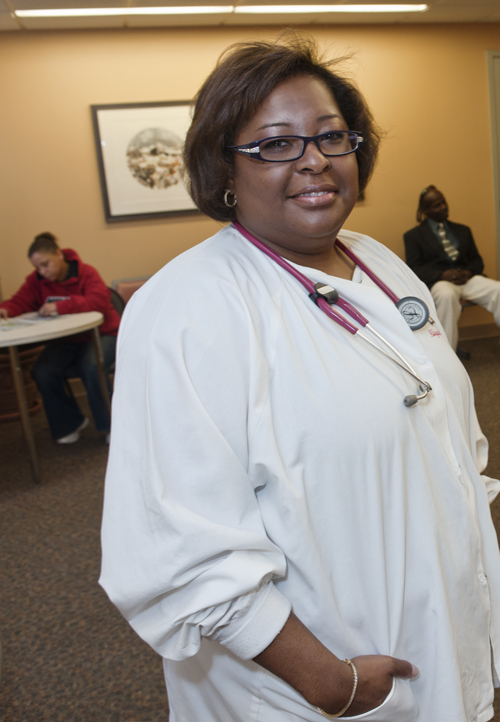
By
Although Connell School of Nursing Assistant Professor Allyssa Harris is familiar with urban literature, she admits she has a hard time reading it, given the genre’s gritty portrayal of city life characterized by provocative, sexually explicit themes detailing violence, promiscuity and substance abuse.
So what does she think when she encounters young patients at her community health center reading B-More Careful by Shannon Holmes, or The Coldest Winter Ever by Sister Souljah, or other works of urban literature?
A certified women’s health nurse practitioner, Harris sees many patients who partake in high-risk behavior, not unlike the characters who populate urban lit. She decided to conduct interviews with African-American women ages 18-21 to investigate the influence of urban literature.
Though targeted for adults 18-44, most of the participants in Harris’ study said they began reading urban lit when they were 12 or 13. Many had received urban lit books from their mothers or other family members. They reported being “able to discern that these novels were fictionalized accounts, but believed younger adolescents might not be able to distinguish fact from fiction, instead believing that this might be an accurate portrayal of the way a women might behave,” said Harris.
“Young women in the books are caught up in the ‘ghetto life,’ worried about day to day living, how to pay the rent and where their next meal is coming from,” she said. “Other things fall by the wayside.”
She wrote about her study for the Journal of National Black Nurses’ Association, which caught the attention of Huffington Post editors who asked Harris to blog about the topic.
Harris believes that urban lit books present an opportunity for dialogue. “Younger girls can’t always make the distinction between real life and fiction. Whether it is video games or television shows or books, media is so influential.”
But Harris cites an influence stronger than the media or peers. “It’s the power of the parent. Multiple studies have shown that adolescents cite parental closeness and communication about their beliefs and attitudes as very important to guiding them with decision-making, including risky behaviors.”
Parents need to ask their children what they are reading and talk to them about the consequences of making risky choices and encourage them to make healthy choices, Harris said.
Harris, who teaches graduate students in the women’s health nurse practitioner program, added that nurses can do their part by encouraging this dialogue between parents and adolescents when they see patients.
“I’m not advocating censorship and I think it is a good thing that young people are reading. But, we can’t ignore the influence these books can have,” said Harris, who received the Excellence in Nursing Education/Teaching Award from the New England Black Nurses Association earlier this year.
Harris, who joined the Connell School faculty in 2007 as a clinical instructor overseeing undergraduates conducting their obstetrics clinical rotation, has published in the Journal of Obstetric, Gynecologic, and Neonatal Nursing, The Journal for Nurse Practitioners and Nursing for Women’s Health.



